Google Summer of Code 2025 



Complete Microservices Infrastructure @ FOSSology
Hello World!, Welcome to my GSoC 2025 project report.
- Organization: FOSSology
- Project: Complete Microservices Infrastructure of FOSSology
- Mentors: Avinal Kumar, Gaurav Mishra and Shaheem Azmal M MD
- Contributor: Muhammad Salman
Table of Contents
- About FOSSology
- Project Overview
- Project Goals
- Work Accomplished
- Challenges and Blockers
- Unfulfilled Objectives
- Future Work
- Commits and Contributions
- Acknowledgements
About FOSSology
FOSSology is an open-source compliance toolset that provides license and copyright discovery. It offers a framework for software analysis and includes tools that enable users to discover licenses and copyrights, parse package files, and categorize files and packages. FOSSology operates as a client-server application with a web-based front end, simplifying tasks such as uploading files or package archives and scheduling analysis jobs. The server efficiently scans through thousands of files, logging copyright statements, license statements, and other metadata. With its combination of a command-line toolkit and a web-based compliance workflow, FOSSology helps organizations manage software license and copyright compliance. It offers flexibility and convenience, making it a powerful tool for software analysis and compliance management.
Project Overview
The goal of my Google Summer of Code 2025 project was to advance the Microservices Infrastructure of FOSSology by rebasing and enhancing Omar AbdelSamea’s prior of 2021, addressing issues in the Kubernetes-based deployment, transitioning the build system from Make to CMake and resolving critical blockers such as scheduler and database connectivity issues. The project aimed to deliver a functional, maintainable and scalable microservices setup for FOSSology, ensuring that all components (web, scheduler, database and agents) work seamlessly in a containerized environment.
Throughout the 13-week period, I collaborated closely with mentors Avinal Kumar, Shaheem Azmal M MD and Gaurav Mishra, as well as the broader FOSSology community, to troubleshoot issues, refine configurations and document progress. While significant progress was made, certain challenges, particularly around the scheduler agent, remain unresolved and will require further effort beyond GSoC.
Project Goals
- Rebase and Update Microservices Architecture: Integrate Omar AbdelSamea’s GSoC 2021 microservices work with the latest FOSSology master branch.
- Resolve Deployment Issues: Fix Docker build errors, Kubernetes pod crashes and database connectivity problems.
- Transition to CMake: Migrate the build system from Make to CMake for better maintainability and scalability.
- Stabilize Scheduler Agent: Ensure the scheduler pod, a critical component for coordinating agents, runs reliably.
- Document Progress and Issues: Provide comprehensive documentation for the final evaluation, outlining accomplishments, challenges, and unresolved issues.
Work Accomplished
Setup and Initial Configuration
- Set up a local development environment on Ubuntu 24.04 using Docker (v27.5.1), Minikube and kubectl.
- Cloned and rebased Omar AbdelSamea’s microservices branch onto the latest FOSSology codebase.
- Resolved initial Docker build errors by updating
debian/changelog,Dockerfile.pkg, andfo-buildto address dependency issues. - Fixed etcd pod issues by switching to version
v3.5.15and reloading images into Minikube. - Addressed Kubernetes API issues (e.g., “no route to host”) through Minikube restarts.
Docker and Kubernetes Enhancements
- Successfully built and tested Docker images for key components:
packages,scheduler,web,ununpack,wget_agent,nomos,copyright, andojo. - Fixed the web UI issue where the default Apache2 Debian page was displayed instead of the FOSSology interface by correcting file paths in the web Dockerfile.
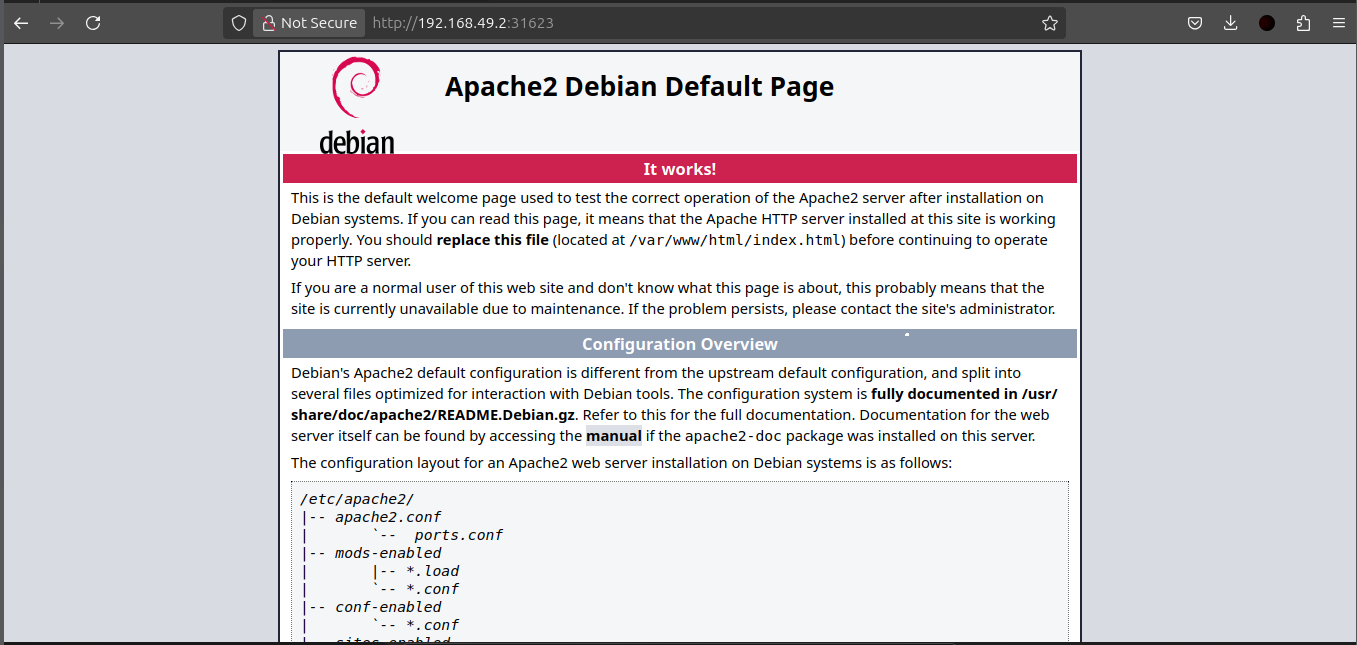
- Switched from Minikube to Kind for faster and more stable local development, then reverted to Minikube due to Kind’s limitations (e.g., unreliable port handling).
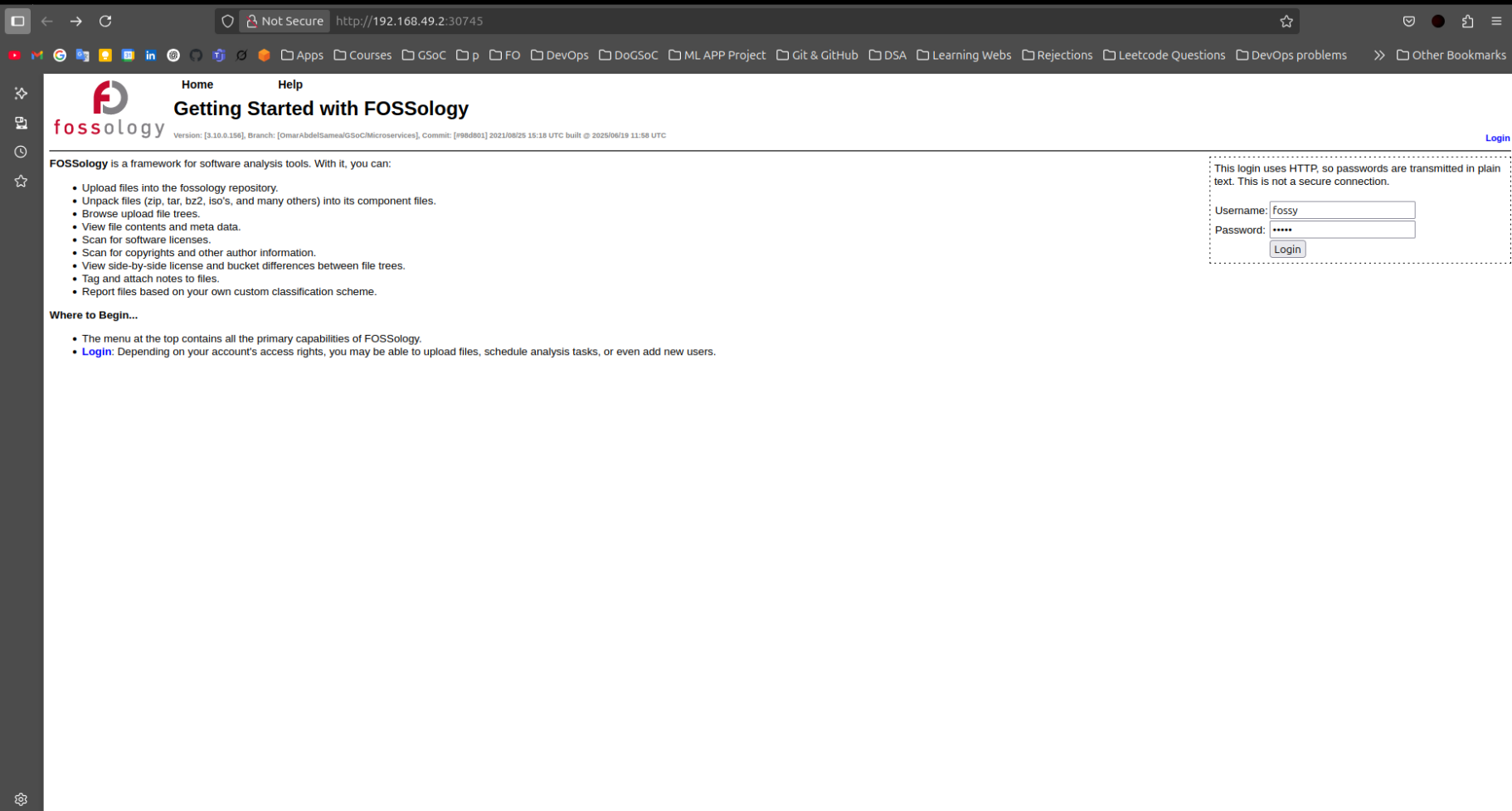
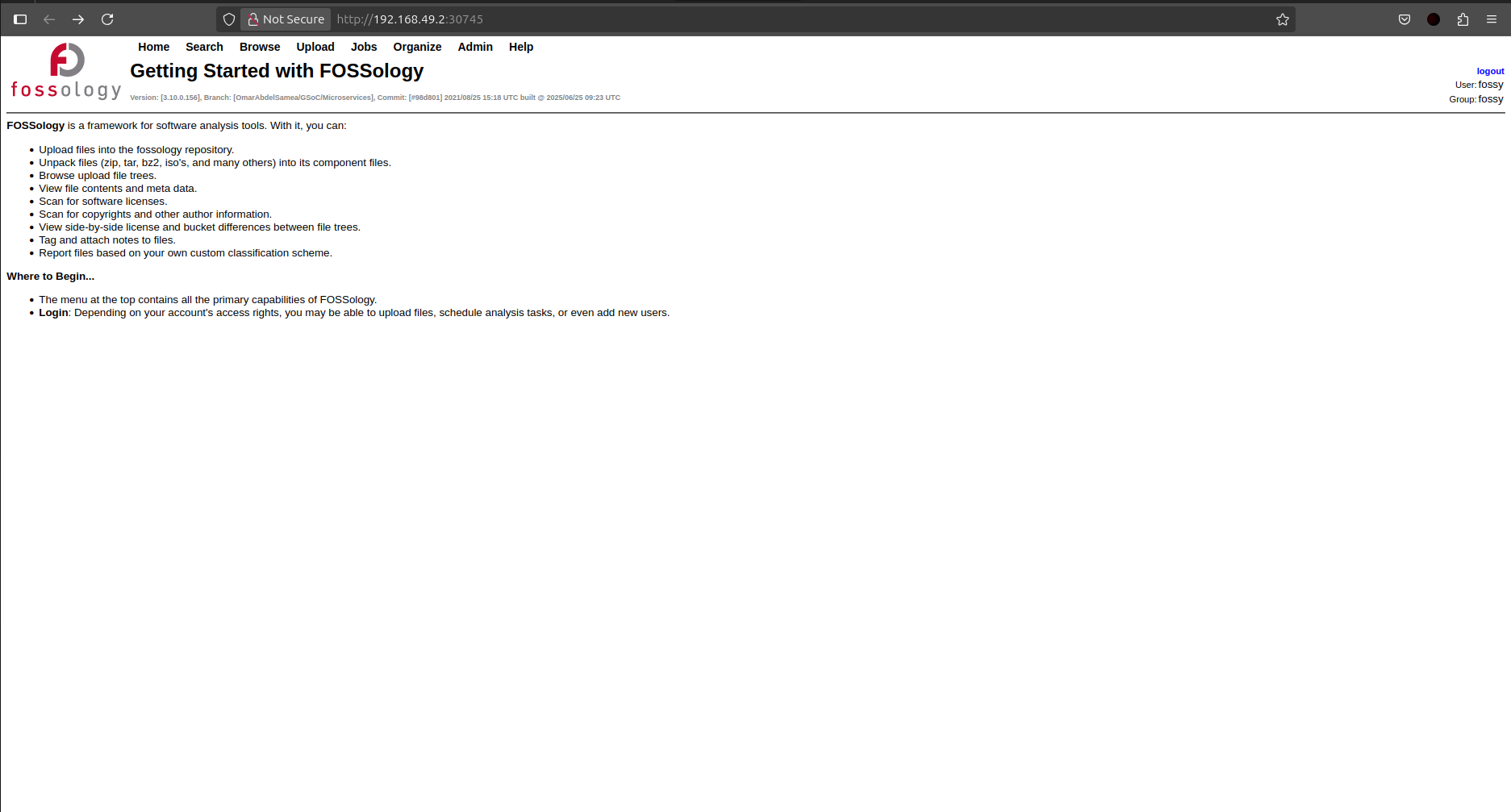
- Added Dockerfiles and Kubernetes configurations for missing agents (
cyclonedx,delagent,readmeoss,scanoss) to ensure complete infrastructure coverage. - Updated Kubernetes manifests (e.g.,
20-web-deployment.yaml) with await-for-dbsection to ensure proper startup order for the web pod.
Transition to CMake
- Migrated the build system from Make to CMake to improve maintainability and flexibility.
- Created a dedicated build folder for scalable Kubernetes configuration management system using Kustomization. uccessfully built most components using CMake, except for the scheduler, which faced database-related issues.
- Ensured compatibility of the CMake setup with Dockerfiles and Kubernetes configurations.
Scheduler Agent Development
- Addressed the scheduler pod’s
CrashLoopBackOffissue caused by a PostgreSQL error (tables can have at most 1600 columns) by resetting the database and updating configurations.
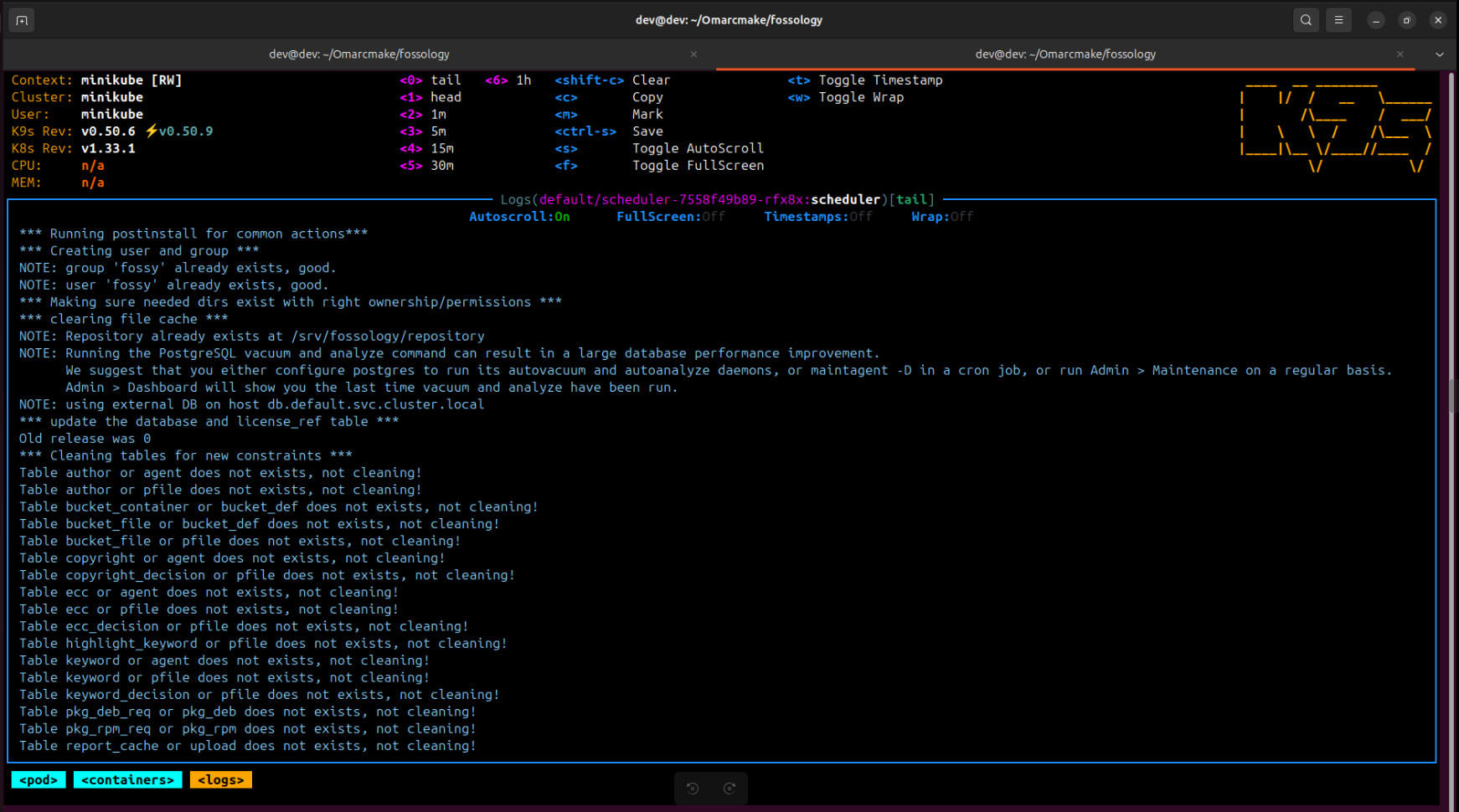
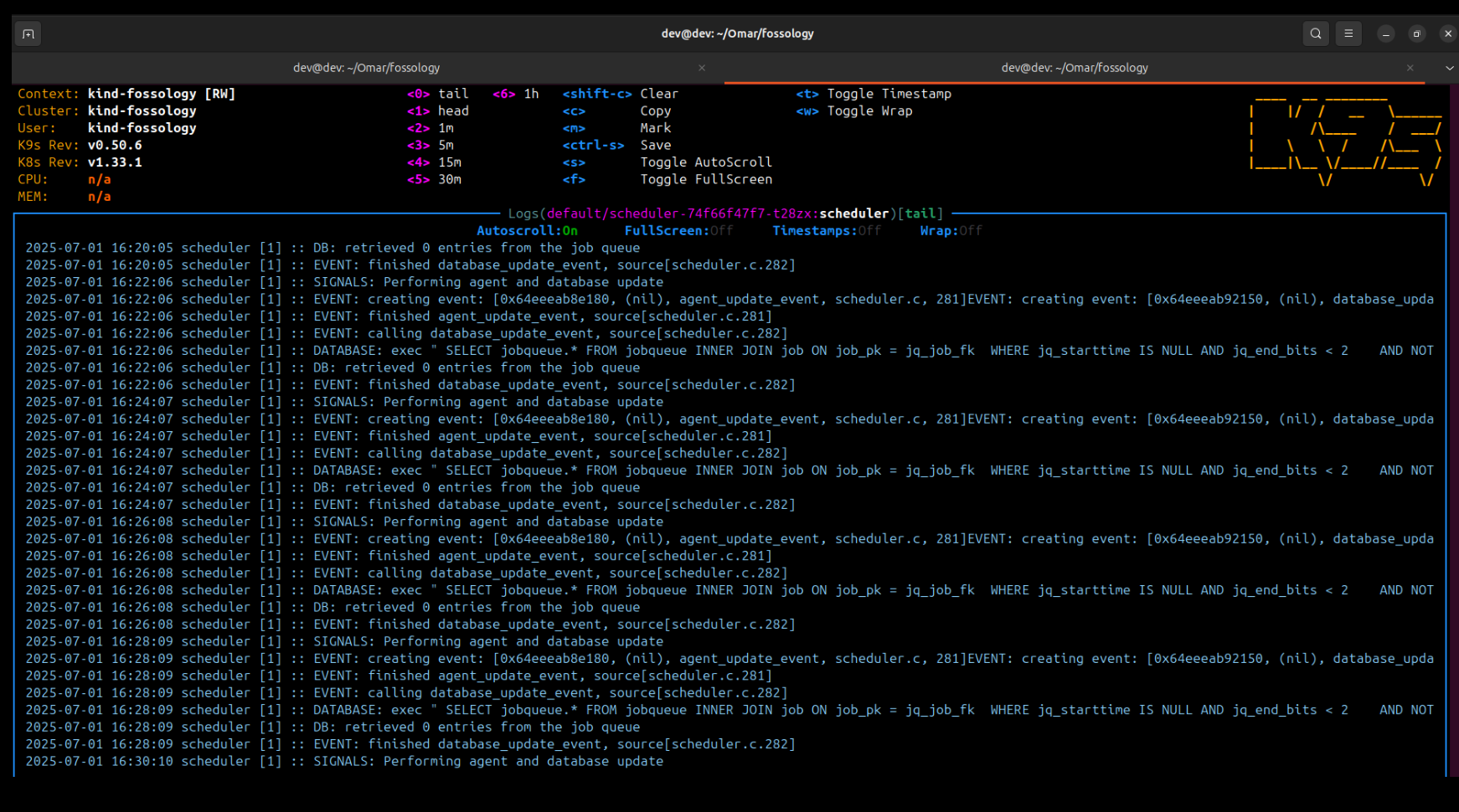
- Partially stabilized the scheduler pod through iterative debugging, log analysis and changes to
docker-entrypoint.k8s.shandphp-conf-fix.sh. - Implemented a curl-based approach for the scheduler to track agent availability, as decided in collaboration with mentors.
- Investigated path mismatches for
fo_schedulerand explored evaluation metrics (e.g., job queue performance, agent execution times).
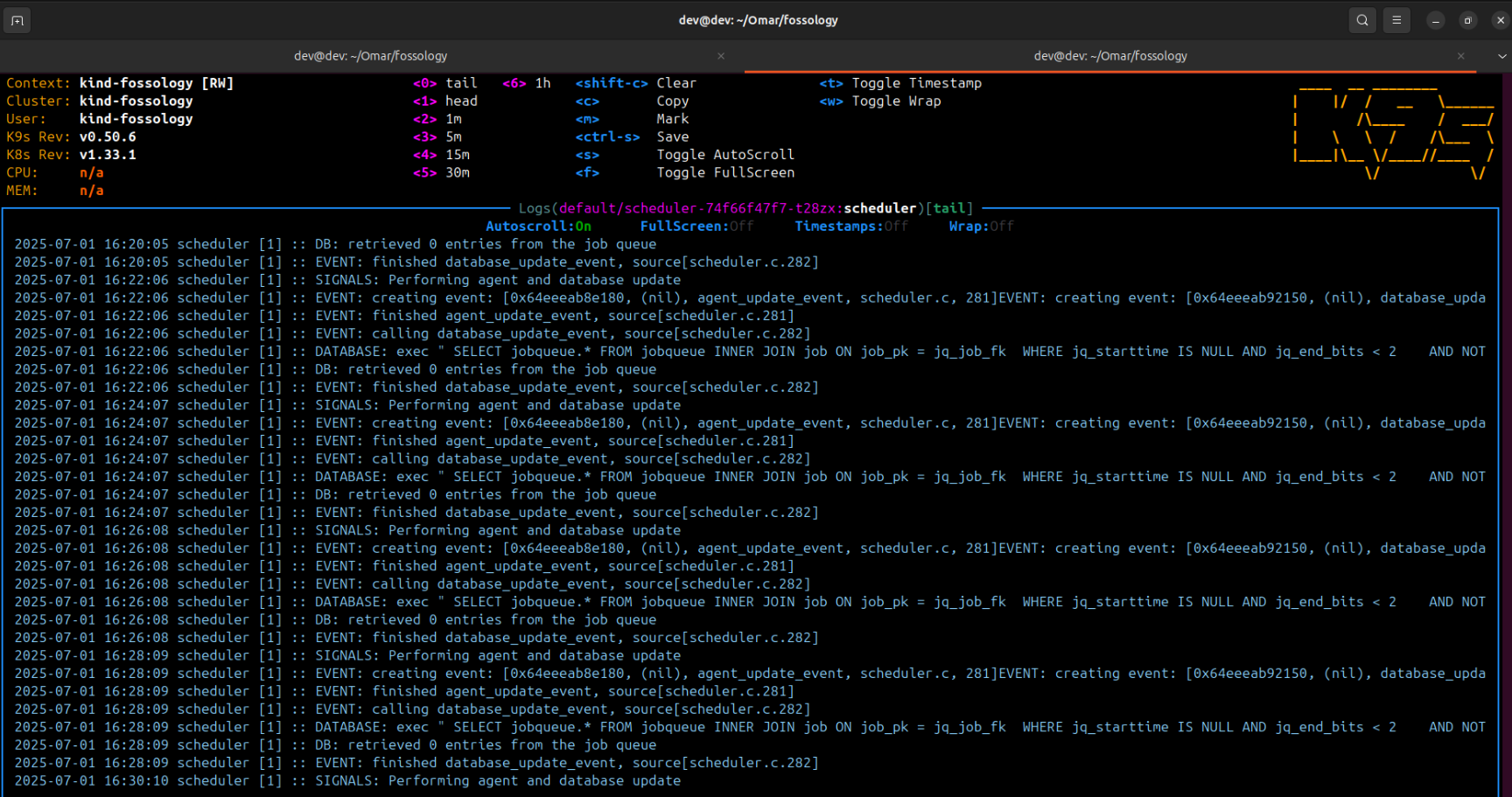
Kustomization Setup
- Developed a Kustomization structure for managing Kubernetes YAMLs, including
base/andoverlays/(dev and prod) directories. - Ensured scalability and maintainability of Kubernetes configurations for future development.
Database and Web Pod Fixes
- Fixed database connectivity issues by verifying PostgreSQL functionality locally (
psql -h localhost -p 5432 -U fossy) and within containers. - Added missing database columns (
create_sysconfig.sql,create_uploadtree.sql,populate_sysconfig.sql,additional_tables.sql,create_additional_tables.sql) to resolve web agent errors.
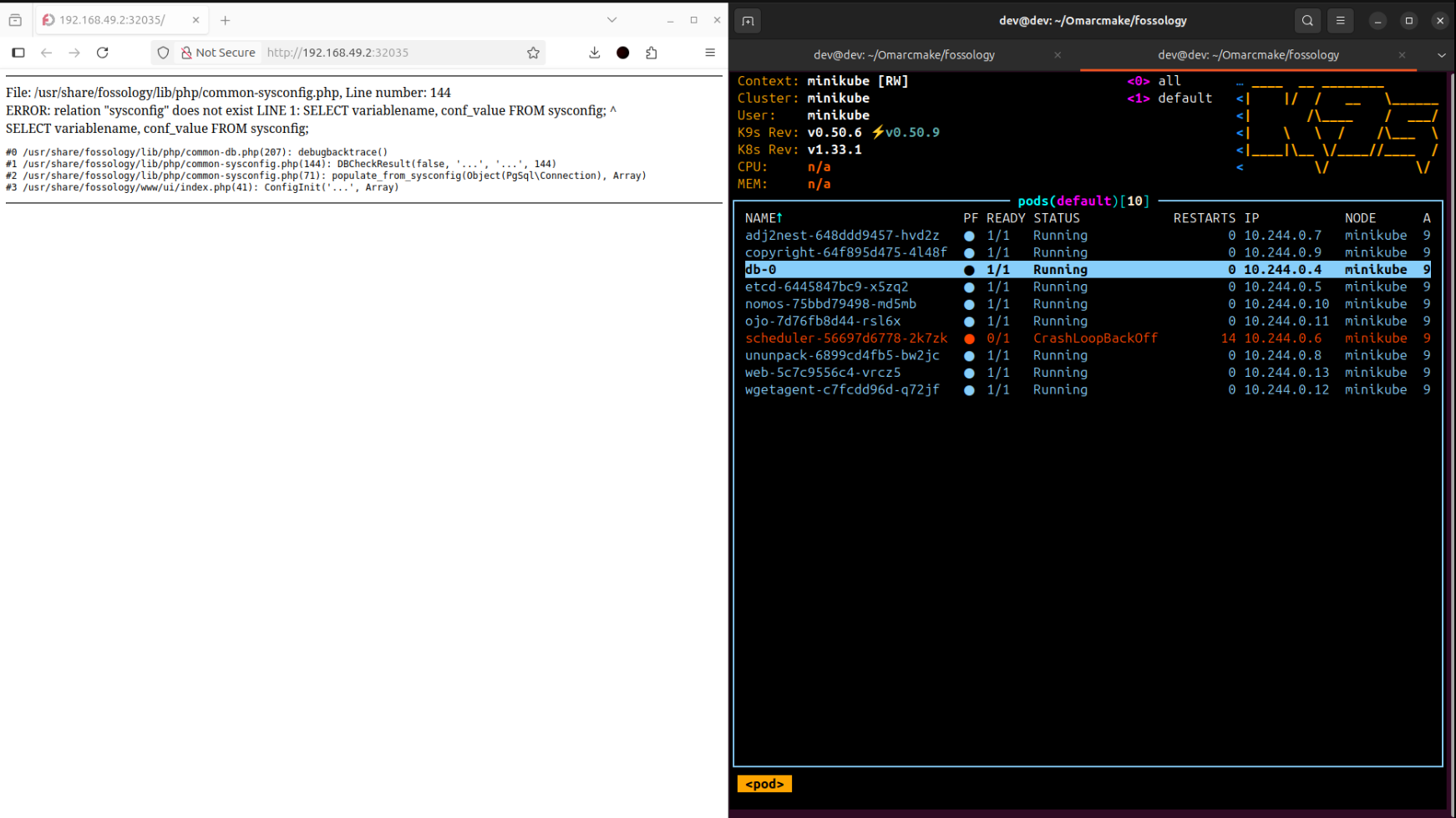
- Configured readiness probes (
pg_isready) and increased init script delays to stabilize database startup. - Partially resolved web pod connectivity issues, though full integration with the scheduler remains incomplete.
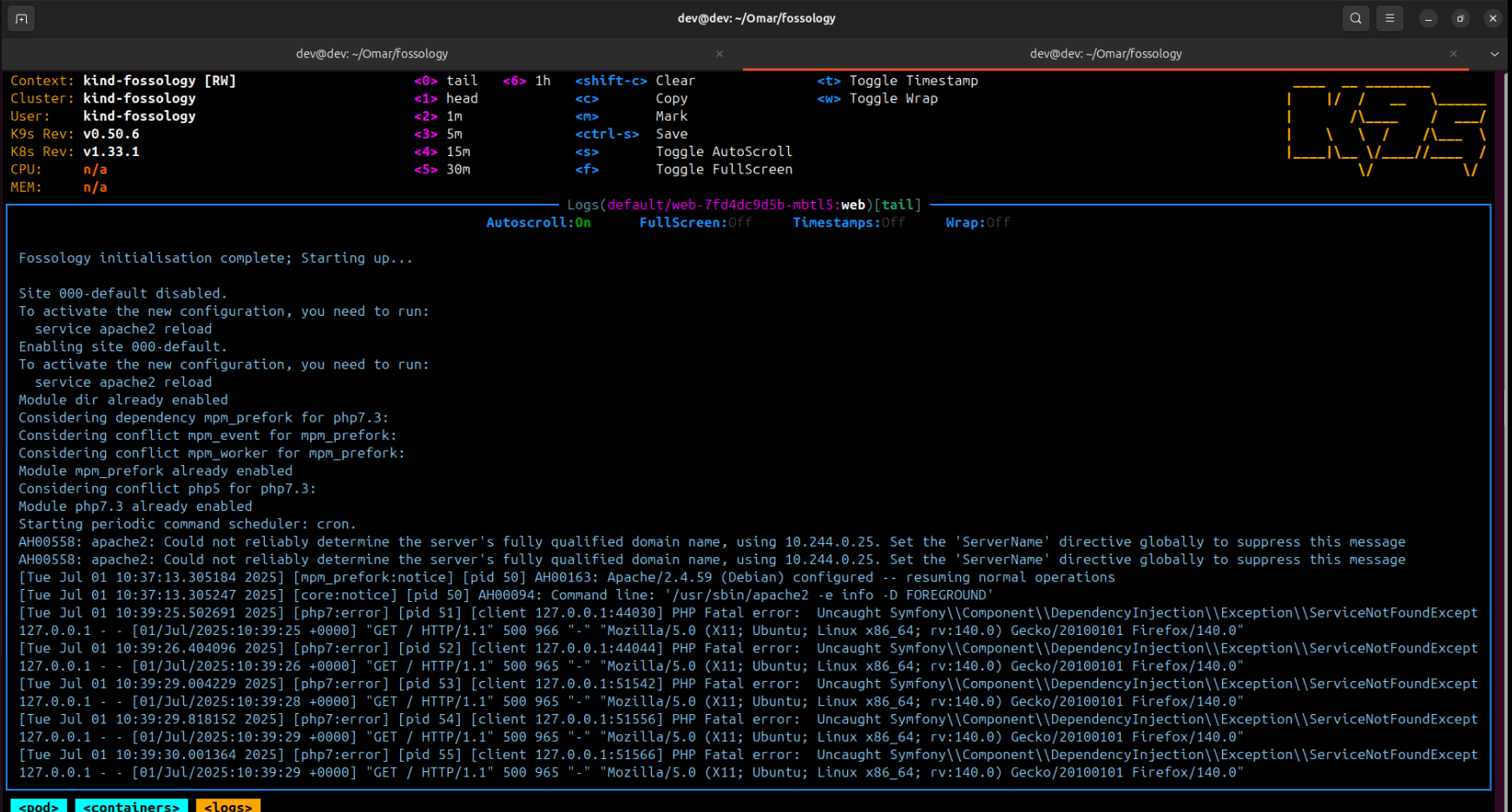
Challenges and Blockers
Scheduler Instability
- Issue: The scheduler pod, critical for coordinating agents like
ojo,nomos, andweb, remains partially functional despite extensive debugging. It suffers from intermittent crashes and connectivity issues. - Impact: Dependent agents cannot operate reliably, and the FOSSology UI occasionally fails to load due to scheduler-related errors.
- Attempts to Resolve: Updated
docker-entrypoint.k8s.sh,php-conf-fix.sh, and Kubernetes configurations; explored curl-based and shared volume approaches; reset database and PVCs; analyzed logs for errors. - Status: The scheduler is partially running but not fully stable. A potential rebuild from scratch is under consideration, pending mentor approval.
Database Migration Issues
- Issue: The latest master branch introduced database migration issues, causing schema incompatibilities and errors during updates (e.g., missing columns, PostgreSQL startup failures).
- Impact: Prevents seamless interaction between the web pod and database, resulting in UI errors like “Could not connect to FOSSology database.”
- Attempts to Resolve: Added missing columns, reset database and PVCs, verified local PostgreSQL connectivity and adjusted Kubernetes service configurations.
- Status: Partially resolved, but issues persist with the latest branch migrations.
Dependency and Configuration Conflicts
- Issue: Compatibility issues arose when switching from
buster-slimtobookworm-slimand during rebasing with the master branch, leading to build failures and missing dependencies (e.g.,libcurl4-openssl-devfor scheduler). - Impact: Delayed progress and required rollbacks to maintain stability.
- Attempts to Resolve: Updated
debian/changelog, Dockerfiles and dependency lists; rolled back tobuster-slimtemporarily; syncedsrc/folder with master branch changes. - Status: Most build issues resolved, but ongoing refinement of Dockerfiles is needed for long-term maintainability.
Unfulfilled Objectives
- Fully Functional Scheduler: The scheduler pod is not fully stable, preventing dependent agents from operating reliably. A complete fix or rebuild is required.
- Complete Database Integration: Persistent database connectivity issues with the web pod and schema migrations from the latest master branch remain unresolved.
- Simplified Dockerfiles: While progress was made, the Dockerfiles still require simplification to reduce complexity and improve maintainability.
- Full Agent Integration: Agents like
cyclonedx,delagent,readmeoss, andscanosshave Dockerfiles and Kubernetes configurations but lack full integration due to scheduler issues. - Evaluation Metrics: Lack of clarity on metrics (e.g., job queue performance, resource usage) for evaluating the scheduler in a containerized setup.
Future Work
Although the GSoC 2025 period has concluded, I am committed to continuing my contributions to FOSSology. The following tasks are planned:
- Stabilize the Scheduler: Finalize the scheduler pod by resolving remaining issues or rebuilding it from scratch, based on mentor guidance.
- Resolve Database Issues: Address schema migration problems and ensure seamless connectivity between the web pod and database.
- Optimize Dockerfiles: Simplify and streamline Dockerfiles for all components to improve build efficiency and maintainability.
- Collaborate with Community: Work with mentors and contributors, including reaching out to Omar AbdelSamea, to align on solutions and incorporate past insights.
Commits and Contributions
Key commits made during GSoC 2025:
- Initial Setup and Fixes: Commit 1af934a
- Polished Dockerfiles and Kubernetes manifests.
- Fixed web and scheduler pod configurations.
- Added init containers for PostgreSQL readiness.
- Scheduler and Database Fixes: Commit 440f907
- Resolved
CrashLoopBackOfffor scheduler pod. - Added missing database columns and updated configurations.
- Resolved
- Update deps aligned with master: Commit 4fd4787
- Migrate from Make to CMake
- Update dependencies
- Added missing agent dockerfiles/deployment
- Aligned with master
- Partially Running Scheduler Agent
- Ongoing Work: Contributions to
src/folder, Dockerfiles for missing agents and Kustomization setup are available in the OmarAbdelSamea/GSoC/Microservices branch.
All changes are pushed to my forked repository: SalmanDeveloperz/fossology.
Documentation
Throughout the 13 weeks of the GSoC period, I consistently created weekly documentation to track and record my progress. Week-wise documentation can be found in the following links:
Weekly Progress
- Community Bonding
- Week 1
- Week 2
- Week 3
- Week 4
- Week 5
- Week 6
- Week 7
- Week 8
- Week 9
- Week 10
- Week 11
- Week 12
-
👉 Here are my project details and Updates on FOSSology gsoc Web
Acknowledgements
I am deeply grateful to my mentors, Avinal Kumar, Shaheem Azmal M MD and Gaurav Mishra, for their guidance, patience, and technical insights throughout the GSoC period. Their feedback during weekly calls and community meetings was invaluable in navigating complex challenges. I also thank the FOSSology community for their support and suggestions, and Google Summer of Code for providing this incredible opportunity.

This GSoC journey has been a tremendous learning experience, enhancing my skills in Docker, Kubernetes, CMake and open-source collaboration. While the project is not fully complete, I am excited to continue contributing to FOSSology and driving the Microservices Infrastructure to a stable.


